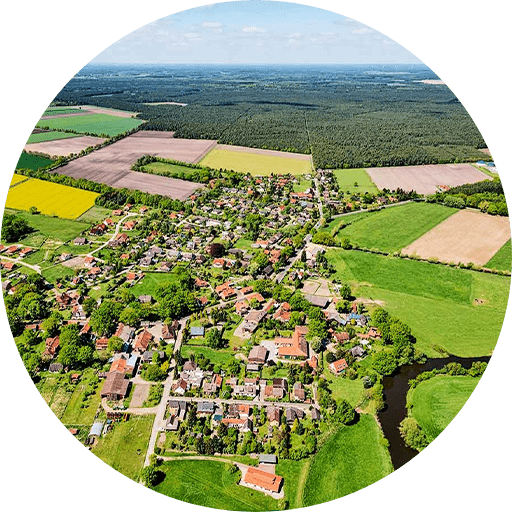Each land use zone is subject to a series of regulations depicting what can be built regarding criteria such as nature, function, and density, giving municipal governments tools to influence urban development.
Agricultural zoning is a land management tool used to support the continuation of farming and the agricultural industry. Agriculture is protected by specific zoning regulations designed to promote agricultural activities and structures while limiting non-agricultural land uses such as dwellings and other activities that can compete for productive farmland. This tool is most effective when it is applied to areas where local agricultural operations dominate the landscape and economy. Agricultural zoning is most appropriately used in agricultural and rural landscapes where there are larger concentrations of agricultural uses.
- The assumption is that urban functions should be allocated to specific areas to improve efficiency and mitigate externalities associated with incompatible land uses.
- Form-based zoning defines zones according to their physical characteristics, mostly from an urban identity perspective, such as the downtown area.
- The form of zoning is usually easier to relate to the general population since it uses zonal definitions that are well known and help create an urban identity by underlining areas with unique characteristics.
- Exclusive zoning prohibits all non-farm residences and most non-agricultural activities from an agriculture zone. Exceptions to this requirement may be granted for parcels of land that are not suitable for farming.
- Supporters of area-based allocation zoning claim that it provides greater flexibility in where to site the non-farm dwellings.
- Commonly, more than one type of zoning will be applied to a city, leading to conflicts and discrepancies between stakeholders.
